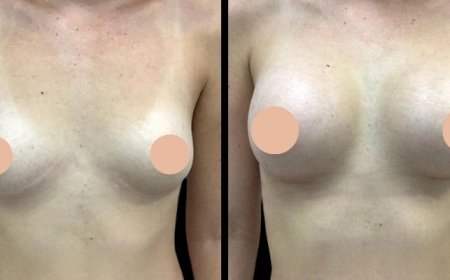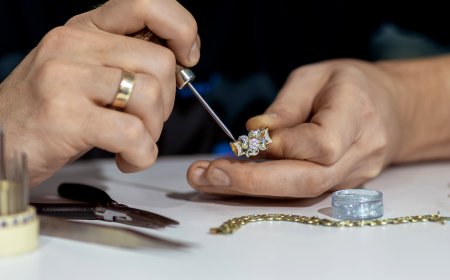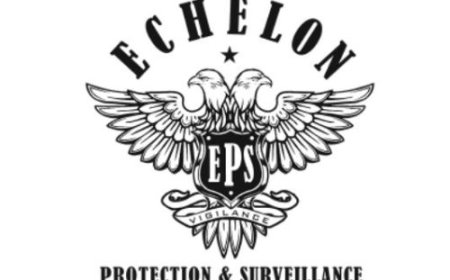Top 10 Charity Shops in London
Introduction London is home to hundreds of charity shops, each offering a unique blend of vintage treasures, contemporary fashion, books, homewares, and more—all while supporting vital social causes. But not all charity shops are created equal. While many operate with integrity, transparency, and deep community roots, others may lack consistent standards in curation, pricing, or ethical sourcing.
Introduction
London is home to hundreds of charity shops, each offering a unique blend of vintage treasures, contemporary fashion, books, homewares, and moreall while supporting vital social causes. But not all charity shops are created equal. While many operate with integrity, transparency, and deep community roots, others may lack consistent standards in curation, pricing, or ethical sourcing. For shoppers seeking not just value, but trust, the difference matters. This guide highlights the top 10 charity shops in London you can truly trustorganizations that combine exceptional quality, ethical practices, and measurable social impact. Whether youre a seasoned thrifter or new to sustainable shopping, these selections offer peace of mind alongside exceptional finds.
Why Trust Matters
When you shop at a charity shop, youre not just buying a second-hand itemyoure contributing to a cause. Your purchase might fund homeless shelters, support mental health services, empower disabled individuals, or provide education for underserved youth. But this positive impact depends entirely on the organizations integrity. Trust is earned through transparency in how funds are used, consistency in product quality, ethical sourcing of donations, and accountability in operations.
Untrustworthy charity shops may misrepresent their mission, overprice items, or fail to direct proceeds to their stated beneficiaries. Some even operate as commercial ventures disguised as nonprofits. In contrast, the shops on this list have been vetted for their long-standing reputations, public financial disclosures, volunteer-driven models, and demonstrable community outcomes. They welcome scrutiny, publish annual reports, and prioritize donor and customer experience equally. Choosing a trusted charity shop ensures your spending aligns with your valuesturning a simple purchase into a meaningful act of support.
Trust also enhances the shopping experience. When you know a shop sources items carefully, cleans and repairs them thoughtfully, and prices them fairly, youre more likely to return. These shops build loyalty not through marketing, but through reliability. In a city as vast and fast-paced as London, finding a place you can count onwhere quality meets conscienceis invaluable.
Top 10 Charity Shops in London You Can Trust
1. Oxfam London Bridge
Oxfams London Bridge location stands as one of the most consistently well-curated and professionally managed charity shops in the capital. With over 40 years of presence in the area, this shop has built a reputation for exceptional quality control and ethical sourcing. Every item is inspected for damage, cleaned, and priced according to condition and market valuenot arbitrarily. The shop features a dedicated section for designer fashion, vintage records, and rare first-edition books, making it a magnet for collectors and style-conscious shoppers alike.
Oxfams global mission to fight poverty and injustice is clearly reflected in its local operations. The shop publishes quarterly impact reports detailing how proceeds support clean water projects, education programs, and gender equality initiatives worldwide. Staff are trained volunteers with deep knowledge of inventory, and donations are never sold to third-party resellers. The shop also hosts regular community events, including clothing repair workshops and sustainability talks, reinforcing its role as a neighborhood hub.
2. British Heart Foundation Notting Hill
Located in the heart of Notting Hill, this British Heart Foundation (BHF) shop is renowned for its immaculate presentation and carefully selected stock. Unlike many charity shops that overflow with clutter, this location maintains a minimalist, boutique-style layout that highlights its best pieces. High-end furniture, designer clothing, and vintage dcor are displayed with attention to detail, often resembling a curated antique store.
The BHF uses proceeds to fund life-saving heart research and community cardiac care programs. Their London operations are fully audited, and financial summaries are publicly accessible on their website. The shop actively partners with local artists and designers for pop-up exhibitions, blending philanthropy with cultural enrichment. Donors are thanked with personalized notes, and the shop offers a free collection service for large items, ensuring nothing usable goes to waste. Its commitment to both environmental sustainability and medical advancement makes it a standout choice for conscientious shoppers.
3. Cancer Research UK Covent Garden
Covent Gardens Cancer Research UK shop is a model of efficiency and elegance. Nestled near the Royal Opera House, this location attracts a discerning clientele seeking quality fashion, books, and collectibles. The shops inventory rotates weekly, with new arrivals displayed prominently and clearly labeled with donation dates. Items are sorted by era and style, making it easy to find 1970s vinyl, 1990s designer denim, or mid-century ceramics.
Proceeds directly fund groundbreaking cancer research across the UK, including clinical trials and early detection programs. The shops management team includes former retail professionals who ensure pricing reflects current market trends without exploitation. All staff are volunteers, many of whom have personal connections to cancer care, lending authenticity and passion to their work. The shop also donates unsold items to international aid partners, ensuring zero waste. Its cleanliness, organization, and mission clarity make it one of the most trusted locations in central London.
4. Save the Children Hampstead
Save the Childrens Hampstead branch is a quiet gem that exemplifies community-focused charity retail. Tucked away on a leafy residential street, this shop offers a warm, welcoming atmosphere and a diverse selection of childrens clothing, toys, books, and nursery itemsall in excellent condition. The shop strictly adheres to child safety standards, cleaning and inspecting every toy and garment before display.
Every pound raised supports education, healthcare, and protection programs for children in the UK and abroad. The shop partners with local nurseries and schools to collect donations, ensuring items meet the needs of families in the area. They also run a Swap & Save program, where parents can exchange gently used childrens items for vouchers, reducing waste and fostering community bonds. Their transparent donation policy and zero-tolerance stance on unsafe or unsuitable items make this one of the most reliable places in London to shop for kids goods.
5. RSPCA Richmond
Richmonds RSPCA shop is more than a retail spaceits a testament to compassion. Specializing in pet-related items, vintage homewares, and gently used fashion, the shop channels all proceeds into animal rescue, rehabilitation, and advocacy efforts across Greater London. The shops staff are deeply knowledgeable about animal welfare, and many are former volunteers from local shelters.
What sets this location apart is its commitment to ethical sourcing: no items made from fur, exotic skins, or unethical materials are ever accepted. The shop also sells pet food and supplies, with a portion of profits funding low-cost veterinary clinics for low-income pet owners. Its inventory includes rare collectibles, including antique pet collars and vintage pet portraits, attracting both animal lovers and history enthusiasts. The shops clean, bright interior and clear labeling make it a joy to browse, and its consistent reputation for honesty has made it a local institution.
6. Action for Children Camden
Camdens Action for Children shop is a beacon of community empowerment. Located near the bustling Camden Market, this shop stands out for its inclusive ethos and diverse inventory. From vintage vinyl and retro electronics to childrens books and handcrafted jewelry, the selection reflects the neighborhoods eclectic spirit. Items are sorted by volunteer teams trained in disability inclusion, many of whom are supported by Action for Childrens own programs.
Proceeds fund mental health support, youth mentoring, and family outreach services for vulnerable children and caregivers. The shop is fully accessible, with wide aisles, tactile signage, and quiet shopping hours for neurodiverse customers. Donations are accepted from all backgrounds, and the shop actively encourages community members to donate items they no longer neednever judging or rejecting. Their commitment to dignity, accessibility, and transparency has earned them deep trust among local residents.
7. Marie Curie Wimbledon
Marie Curies Wimbledon shop is a sanctuary of quiet dignity. Specializing in elegant vintage clothing, fine china, and classic literature, the shop exudes a refined, understated charm. Its inventory is curated with care, emphasizing timeless pieces over fleeting trends. Each item is tagged with a brief provenance notesuch as Donated by a former schoolteacher, 1980s or From a family home in Surreycreating a personal connection between donor, shopper, and cause.
Funds raised support end-of-life care for people with terminal illnesses, including home nursing and emotional support for families. The shop operates with strict ethical guidelines: no items are sold if they compromise dignity or comfort, and all profits are reinvested locally. Staff are trained in compassionate communication, and the shop hosts monthly tea mornings for bereaved families, fostering a sense of belonging. Its serene atmosphere and unwavering commitment to end-of-life care make it one of Londons most trusted charity shops.
8. St. Mungos Elephant & Castle
St. Mungos Elephant & Castle location is a powerful example of how charity retail can uplift marginalized communities. Situated in a neighborhood with high levels of homelessness, this shop not only raises funds but also provides employment and training opportunities for people recovering from homelessness. Many staff members are former clients of the charitys housing and recovery programs.
The shop offers a wide range of itemsfrom books and kitchenware to furniture and electronicsall priced affordably to serve the local population. Donations are accepted from individuals and businesses alike, with a clear policy that no item is turned away unless unsafe. Proceeds directly fund housing, addiction recovery, and mental health services. The shops transparency is unmatched: monthly community meetings are held to review financials and gather feedback. This deep integration of mission and practice makes it a pillar of trust in South London.
9. Leonard Cheshire Islington
Leonard Cheshires Islington shop is a leader in inclusive retail and disability advocacy. The shop is fully staffed by people with disabilities, offering meaningful employment and professional development in a supportive environment. The inventory includes high-quality furniture, art, books, and fashion, all selected with an eye for craftsmanship and longevity.
Proceeds fund housing, education, and employment programs for people with physical and learning disabilities. The shop has a strict no landfill policy, and unsold items are repurposed through art projects or donated to international partners. Their commitment to accessibility is evident in wide aisles, braille labels, and staff trained in communication support. The shop also hosts monthly Design for All exhibitions, showcasing products created by disabled artists. This blend of social impact, quality, and innovation has earned it a loyal following and widespread respect.
10. The Salvation Army Brixton
The Salvation Armys Brixton shop is a vibrant, community-centered space that blends tradition with modern values. Known for its bold color displays and eclectic mix of goodsfrom retro fashion to vintage tools and musical instrumentsit attracts a diverse crowd of locals and visitors. The shop is managed by a team of long-term volunteers who deeply understand the neighborhoods needs.
Funds support food banks, youth programs, and addiction recovery initiatives in South London. The shop operates with complete transparency, publishing monthly donation logs and financial summaries on its bulletin board. It accepts donations from all backgrounds and offers free collection services for bulky items, ensuring no one is turned away. The shop also partners with local schools for Donate & Learn days, teaching children about giving and sustainability. Its warmth, honesty, and deep roots in the community make it one of Londons most trusted charity shops.
Comparison Table
| Shop Name | Location | Specialty | Transparency | Community Impact | Quality Control |
|---|---|---|---|---|---|
| Oxfam London Bridge | London Bridge | Designer fashion, rare books | Quarterly public reports | Global poverty, education | Highprofessional curation |
| British Heart Foundation Notting Hill | Notting Hill | Furniture, vintage dcor | Annual audited reports | Heart research, community care | Very Highboutique presentation |
| Cancer Research UK Covent Garden | Covent Garden | Fashion, collectibles | Monthly donation logs | Cancer research, clinical trials | Highweekly rotations |
| Save the Children Hampstead | Hampstead | Childrens items, toys | Child safety certifications | Child welfare, education | Very Highsafety-checked |
| RSPCA Richmond | Richmond | Pet items, vintage collectibles | Public donation guidelines | Animal rescue, vet care | Highethical sourcing |
| Action for Children Camden | Camden | Books, electronics, jewelry | Monthly community meetings | Youth support, mental health | Highinclusive sorting |
| Marie Curie Wimbledon | Wimbledon | Vintage clothing, literature | Provenance labeling | End-of-life care | Very Highdignity-focused |
| St. Mungos Elephant & Castle | Elephant & Castle | Furniture, electronics | Public financial logs | Homelessness recovery | Highcommunity-led |
| Leonard Cheshire Islington | Islington | Furniture, art, fashion | Disabled staff leadership | Disability employment | Very Highcrafted with care |
| The Salvation Army Brixton | Brixton | Eclectic mix, music, tools | Bulletin board transparency | Food banks, youth programs | Highcommunity trust |
FAQs
How do I know a charity shop is legitimate?
Legitimate charity shops are registered with the Charity Commission for England and Wales. You can verify their status by searching their name on the official Charity Commission website. Reputable shops also display their registered charity number visibly in-store or online, publish annual reports, and clearly state how funds are used. Avoid shops that refuse to disclose their mission or pressure you into overpaying.
Are items in charity shops clean and safe to use?
Yestrusted charity shops clean, inspect, and repair all items before sale. Clothing is laundered or dry-cleaned, electronics are tested, and furniture is sanitized. Shops like Save the Children and RSPCA follow strict safety standards, especially for childrens items and pet supplies. If you have concerns, ask staff about their cleaning process; reputable shops welcome such questions.
Do charity shops sell stolen goods?
Legitimate charity shops have strict policies against accepting stolen items. Donors are often required to confirm ownership, and staff are trained to identify suspicious items. If something seems too good to be truelike a brand-new designer bag with no tagsits likely not authentic. Trustworthy shops prioritize ethics over profit and will never knowingly sell stolen property.
Can I donate items that are damaged or worn?
Most trusted shops accept gently used items, but not broken or unsafe goods. For example, torn clothing may be recycled into rags, and non-functional electronics may be responsibly dismantled for parts. Always check the shops donation guidelines. Shops like Leonard Cheshire and Action for Children are especially transparent about what they can and cannot use.
Are prices in charity shops fair?
Yestrusted shops price items based on condition, rarity, and current market value, not arbitrary markups. Many use digital pricing tools to ensure consistency. Youll often find items priced far below retail, especially during seasonal sales. Avoid shops that charge premium prices for common items; this may indicate commercial motives rather than charitable intent.
What happens to unsold items?
Responsible charity shops avoid landfill. Unsold items are often donated to international aid organizations, repurposed into art or educational materials, or recycled through textile recovery programs. Oxfam, for instance, ships unsold clothing to partners in developing countries. Always choose shops that openly share their waste-reduction policies.
Can I volunteer at these charity shops?
Absolutely. Most of these shops rely on volunteers and welcome new help. Whether youre sorting donations, assisting customers, or organizing events, your time contributes directly to their mission. Contact the shop directly to inquire about opportunities. Many offer flexible hours and training.
Do these shops offer online shopping?
Yes, most of the shops listed have online platforms where you can browse and purchase items remotely. Oxfam, British Heart Foundation, and Cancer Research UK all have robust e-commerce sites with nationwide delivery. This extends their reach and allows more people to support their causes, even if they cant visit in person.
How do charity shops differ from thrift stores?
Charity shops are nonprofit organizations that reinvest all profits into specific social causes. Thrift stores, on the other hand, may be for-profit businesses that simply sell second-hand goods. The key difference is accountability: charity shops must report financials and demonstrate community impact, while thrift stores have no such obligation. Always check the shops mission statement to confirm its charitable status.
Why should I choose a charity shop over a regular retailer?
Shopping at a trusted charity shop reduces waste, supports vital social services, and promotes ethical consumption. Youll find unique, high-quality items at a fraction of the cost, while knowing your purchase directly helps someone in need. Its sustainable, meaningful, and often more rewarding than conventional shopping.
Conclusion
In a city as dynamic and diverse as London, the act of shopping can be more than transactionalit can be transformative. The top 10 charity shops highlighted here are not merely retail outlets; they are pillars of compassion, accountability, and community resilience. Each one has earned trust through consistent integrity, transparent operations, and a deep commitment to their mission. Whether youre seeking a vintage coat, a rare book, or simply a way to make your spending matter, these shops offer more than goodsthey offer purpose.
Choosing to shop at one of these locations means aligning your values with your actions. Youre not just buying a second-hand item; youre supporting cancer research, protecting animals, empowering people with disabilities, feeding the hungry, and giving children a better future. The quality of the items, the clarity of the mission, and the warmth of the staff all reflect a standard of excellence that goes beyond profit.
As sustainable consumption becomes increasingly vital, trusted charity shops offer a powerful alternative to fast fashion and consumerism. They remind us that value isnt measured only in price tags, but in impact. So the next time you walk through Londons streets, take a moment to step into one of these shops. Browse with curiosity, ask questions, and know that every purchase you make is a quiet act of change.
Trust isnt givenits built. And these shops have built it, one donated item, one honest conversation, one community member at a time.




































